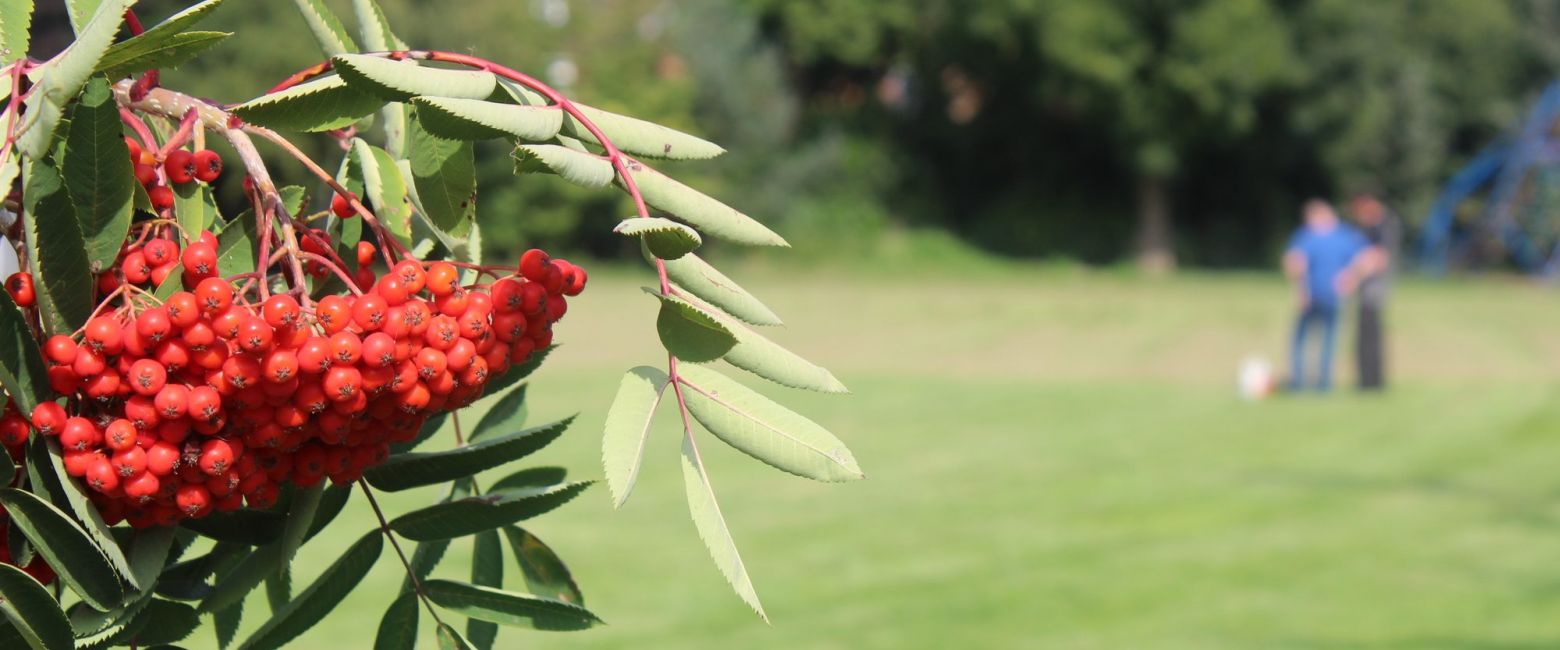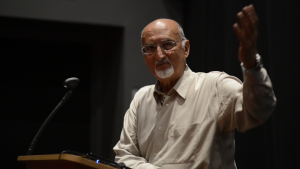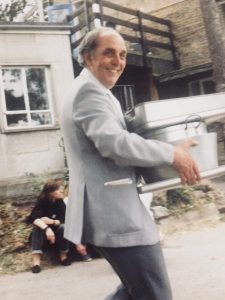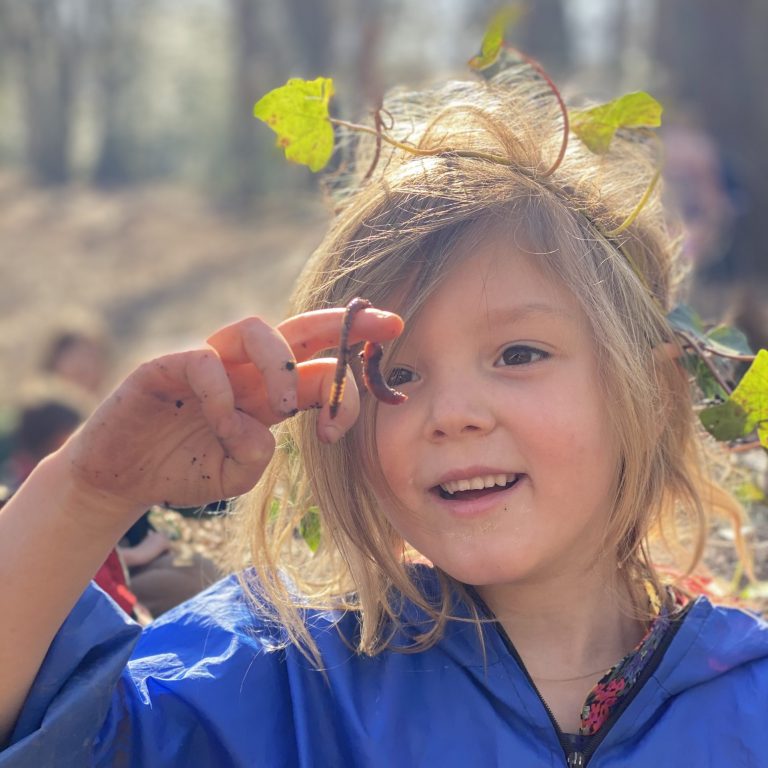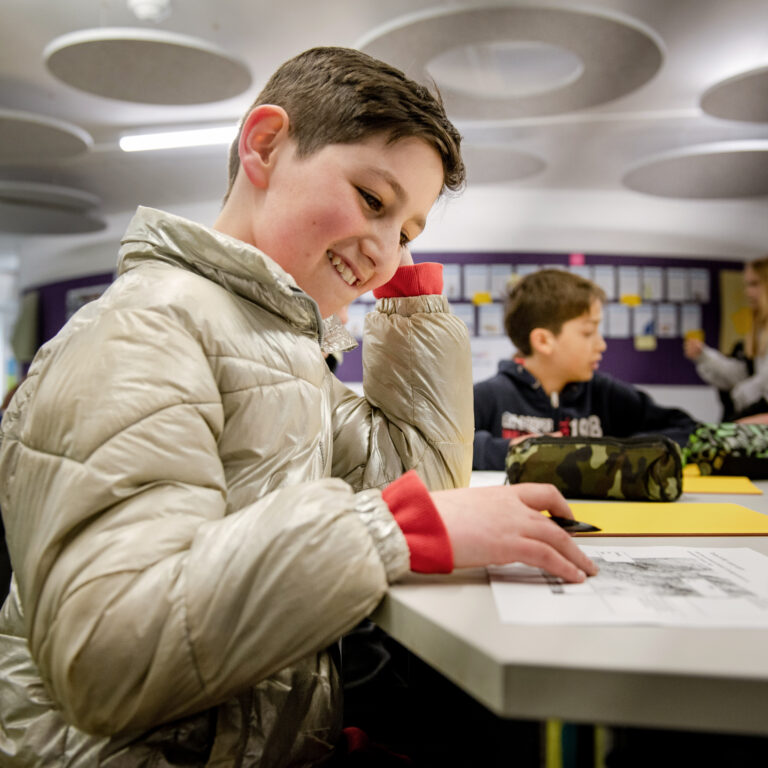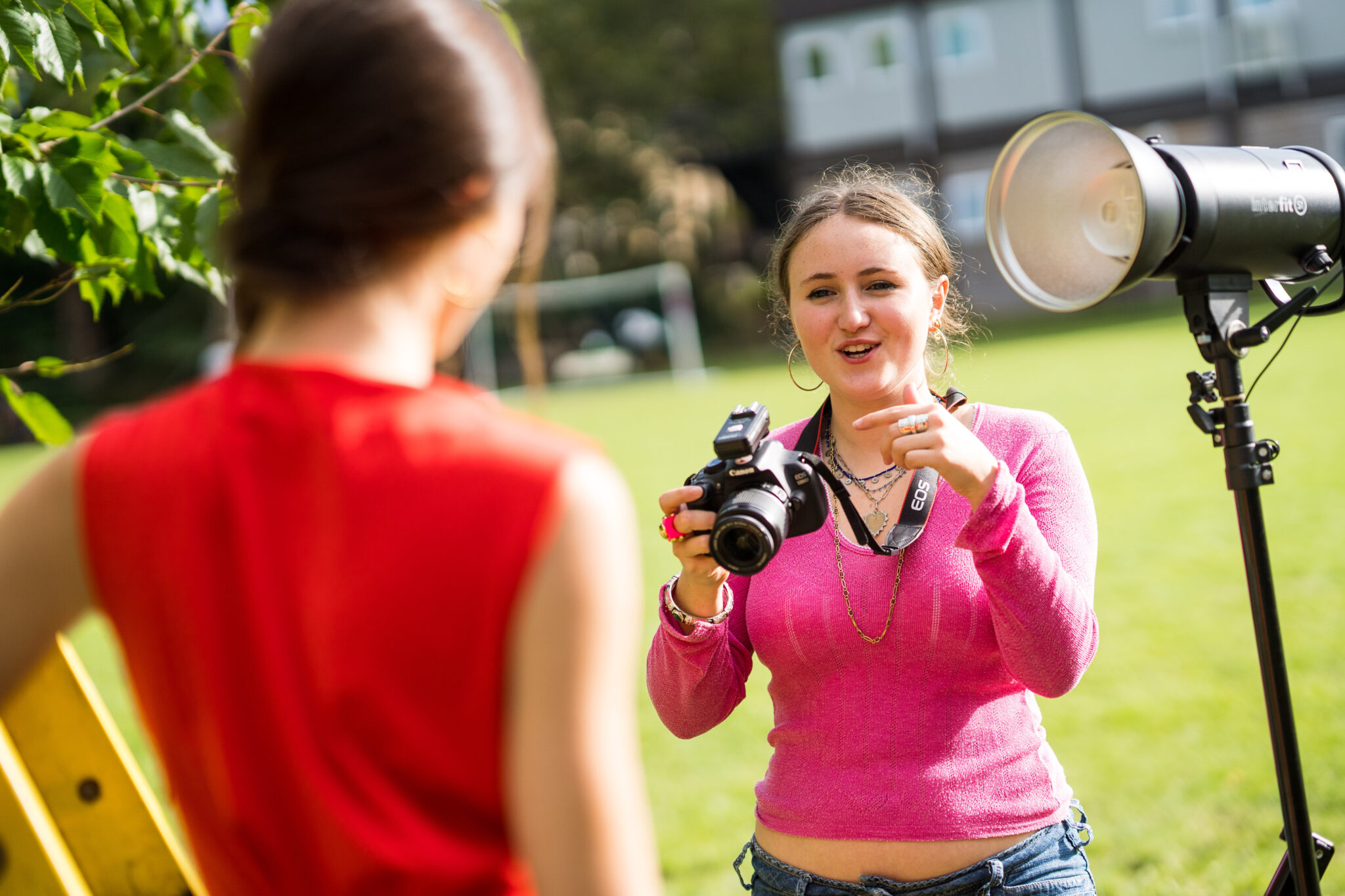Memories of Old Alfredians
Please do inform us if you know of any OA deaths so we may take their names off our mailing list and avoid causing distress to their families.
Mamoun Hassan 12 December (1937-2022)
“Filmmaker, British Film industry leader and passionate believer in cinema”
Obituary reprinted from the Guardian by Kevin Brownlow (edited)
The producer Mamoun Hassan, who has died aged 84, was a significant figure in British cinema of the 1970s and 80s, whose remarkable career, if not entirely satisfying his artistic gifts, was unusual in that it enabled so many other film-makers’ careers, and gave rise to numerous courageously non-commercial projects. What was notable was how commercial some of them turned out to be.
Although he was a talented director and screenwriter, it was in his roles as the first head of production of the British Film Institute (1971-74) and managing director of the National Film Finance Corporation (NFFC, 1979-84) that Mamoun was most influential, being instrumental in the making of such classic British films as Bill Forsyth’s Gregory’s Girl, Franco Rosso’s Babylon (both 1980) and the animated adaptation of Raymond Briggs’s When the Wind Blows, directed by Jimmy Murakami (1986).
Perhaps the most important figure he brought to prominence was Bill Douglas, the Scottish film-maker responsible for the exceptional My Childhood trilogy (1972-78) and Comrades (1986), an important political film about the Tolpuddle Martyrs of the 1830s.
In 1976 Mamoun had backed and supported Terence Davies’s first production, the short film Children, and Horace Ové’s Pressure, the first serious feature film to reflect the black experience in Britain. It was Mamoun, too, who granted the finance to Andrew Mollo and I to make Winstanley (1975).
Babylon was the first film he backed at the NFFC, after it had been rejected everywhere else. This continued a pattern of breaking the rules and putting his job on the line by committing more money than he was supposed to. When the film was released in the US in 2019, after nearly 30 years, it gained rave reviews.
Crucially, also at the NFFC, Mamoun changed the advisory board of the National Film Development Fund to include directors and producers as well as writers, which radically increased the number of scripts produced and led to films such as A Room with a View and Dance with a Stranger (both 1985) being made.
Mamoun was born in Jeddah, Saudi Arabia, to Hamid Hassan, a doctor, and Fatma (née Sadat). His family came to London in 1949, settling in Hampstead, north London, where Mamoun went to King Alfred School.
In 1958, he began studying electrical engineering at University College London. I first met him during this time, in the early 60s, when I was working as an editor for a documentary film company and he came to work for me as an assistant. Eventually, Mamoun made the decision to work in film rather than in engineering, and he left university before graduation.
When I was asked to make a short documentary for the BFI on the last tram in Britain, 9, Dalmuir West (1962), Mamoun was indispensable as second cameraman.
The films that Mamoun made at the beginning of his career – documentaries and shorts – proved his talent. The Meeting (1964) won the best short film award at the 1965 Oberhausen international film festival.
Douglas’s script for Childhood, which was then called Jamie, was one of the first that Mamoun read. It was his idea to make it the first of a trilogy, to ensure that Douglas would get the rest of his films made, and after it won the Silver Lion at Venice in 1972, its success helped the BFI move into feature production.
In 1974, Mamoun left to lead the film section for the United Nations Relief and Works Agency for Palestine Refugees in the Near East (UNRWA), based in Lebanon. As soon as he landed, civil war broke out and he found himself avoiding gunfire while directing the film Some of the Palestinians (1976). It went on to win an outstanding film award at the London film festival.
On returning to the UK in 1976, Mamoun was invited to form and head the directing department of the National Film and Television School. The following year he became a member of the Cinematograph Films Council, advising the government, while also being a founder member of the Association of Independent Producers, critiquing said government.
As Managing Director of the NFFC, Mamoun, unlike his illustrious predecessor, Sir John Terry, never asked for an executive producer credit on the feature films he backed and nurtured. Many years later, he confessed this had probably been a bad idea.
In 1988 Mamoun devised the Movie Masterclass series for Channel 4, based on his work with students at the NFTS. In 1997 Mamoun was appointed dean of editing at Escuela Internacional de Cine y TV (EICTV), in Cuba. He went on to co-produce, co-write and co-edit the award-winning Chilean film Machuca (2004), directed by Andrés Wood. With Wood, Mamoun also wrote the screenplay for La Buena Vida (The Good Life, 2008), which won a slew of awards including a Spanish Goya.
Mamoun was one of the most intelligent men I have met. His opinions were often startling and always stimulating.
In 1966 he married Moya Gillespie, a publishing editor. She survives him, as do their two sons, Sherief and Anies, two granddaughters, Sabrina and Jasmine, and a brother, Talaat (OA).
John Tunnell (1934-2019)
Pamela Tunnell, ‘Thank you for sending us the Alfredians magazine regularly, John did appreciate it. He is very highly regarded in our village. Thank you for giving John such an excellent start to his life’.
Edited version of obituary printed in ‘3 Heralds’ parish magazine written by Malcolm Acheson (Rector of Storrington 1994-2014).
John Derek Tunnell was brought up in Mill Hill with his younger brother Robert (Bob). Throughout the Second World War the family were able to remain in their family home at Mill Hill, but shortly afterwards they stayed for quite a while with a relative in the Devon countryside. After returning to London John and Bob became ‘Alfredians’ – they attended the rather progressive King Alfred School, a secular co-educational day school striving to encourage the personal development of pupils as well as academic achievement. John enjoyed tennis, squash, hiking and snooker as well as chess. He loved classical music and his favourite pop artists were Lulu and Shirley Bassey. John’s career was with Sun Alliance as a Specialist Insurance Underwriter in the Overseas Division. His work took him to Bermuda and Australia and also to South Africa just before retirement. But he was mainly based in Horsham.
Around 1964, John went walking with a holiday fellowship to the Black Mountains and Brecon Beacons in Wales. There he met Pamela Thorpe, a lively and attractive nurse who shared his faith, his good humour, and his care and concern for others. Pam and John were married in Bath Abbey on 14 May 1966; they enjoyed a happy family life with their children Anthony and Catherine and later their grandchildren Ethan, Zoe, Sophia and Matthew. John was a steadfast Christian and at various times John was Treasurer and Churchwarden at Storrington; he was editor of 3 Heralds magazine and later Chairman of the magazine committee and treasurer and trustee of the Alison MacDonell Trust. He was a Lay Minister of Communion. He was genial and benevolent, supportive and positive, he made everyone feel at ease. He carried out his responsibilities not only with diligence but with excellence.
Since coming to Storrington, Pam and John’s hospitality has been legendary and they have taken great delight in welcoming all comers with loving kindness. John’s various infirmities have been eclipsed by the warmth of his personality; he has been a blessing and an encouragement to all who have known him.
Roy Greenfield 2019
A much loved and respected Maths teacher retired in 1987 after 27 years at the school. “He was humble, but wise and knowledgeable about students”
Roy Greenfield Head of Maths and Deputy Head King Alfred School died in July 2019
shortly after his wife June passed away in June. Roy was a much loved and respected teacher and retired in 1987 after 27 years at the school. We received a great many tributes and messages about Roy from Old Alfredians from around the world on social media and email. A memorial service to celebrate Roy’s life was held on 27th September 2019 in Dorset. It was organised by his sons Simon, Steve, David & Richard. Roy wanted minimal fuss and so at his request and he had a private cremation.
Rita Murray, teacher at KAS read out the following tribute at Roy’s memorial service:
I first met Roy at the beginning of the famous hot summer of 1976 when he interviewed me for my first teaching job. He was the face to make a nervous student feel welcome, and he personified the ethos of King Alfred School. From September I came to see he was the first person at school every morning, and the last to leave. He wasn’t pre-occupied or busily preparing and marking his own work, but was always there for other teachers and students.
We had no departmental offices then, so everyone would converge in a crowded staff room at break. The chief tea-maker and facilitator of conversation about lessons, students, cricket, anything you needed to know, was Roy. This role model of Deputy Head as pastoral mentor to junior staff is, sadly rare today.
Roy never exerted any self-importance. He was humble, but wise and knowledgeable about students. So, he was respected for his many qualities, rather than his position. He was Head of Maths, and I think it is no co-incidence that I have always felt the climate in the Maths department was one without egos, but typically one where hard work, commitment to students, support for each other was the norm.
Roy was a gentle, funny self-effacing rock at KAS. It therefore took me by surprise to overhear some students discussing who were the strictest teachers. One child said that Roy was the worst person to be reprimanded by. Why? Surely you don’t fear Roy? Well, no, was the answer, but, a telling off by Roy would be a prolonged affair, with a lot of discussion and soul-searching. Roy managed to make the miscreant feel so guilty about their misdemeanours, it was harder to receive, though certainly effective.
I often think of funny things Roy said: When some students in Year 9 were being difficult, he said he had often felt that from 14, some children should be allowed to leave school, and return later, at 16 when they were ready to learn. The obvious flaw in this, of thousands of teenagers roaming the streets unsupervised, Roy acknowledged.
He also made us laugh with his philosophy about simplifying reports. Three short alternative comments could sum up most of what a teacher might need to say about the progress of his/her pupil: “Could do better.” “Could do worse.” “Couldn’t do worse.” Of course, Roy was joking, but I do believe that he once read a report from a teacher who didn’t know one of his pupils, or otherwise could not think of a thing to say and wrote: “I believe he plays the trumpet.”
Sally Soames nee Winkleman (1937-2019)
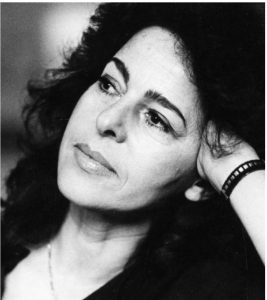
Obituary edited from The Times, 7th October 2019
Old Alfredian Sally Soames died after a long illness aged 82 on 5th October 2019. She spent 32 years as a star photographer on The Sunday Times. Her body of work amounted to nothing less than a visual chronicle of the social, political and cultural history of the second half of the 20th century. Her subjects included Hollywood moguls, half a dozen prime ministers, sports and movie stars, Booker prizewinning novelists, painters, captains of industry and ballet dancers.
A total of 17 of Soames’s black and white portraits are in the National Portrait Gallery’s collection, ranging from Edward Heath to Salman Rushdie. Her portraits of Rudolf Nureyev, the ballet dancer, and Lord Denning are in the V&A’s collection. All were shot in classic monochrome for she abhorred the “vulgarity” of colour and stubbornly refused to make the switch after Fleet Street’s conversion to electronic production and colour printing. She would also have objected strongly to the description of those she photographed as “subjects”, and even refused to refer to her pictures of the rich and powerful as “portraits”. They were, she insisted, “photographs of people”. A lifetime spent lugging heavy photographic gear around resulted in an increasing immobility, which eventually forced her into retirement. “She suffered for her art and eventually her body gave in,” said her only son, Trevor Soames, a photographer and barrister. Devoted to friends, family and “anything furry”, she loved riding until forced to stop after breaking her arms when a polo pony bolted.
She was born Sally Winkleman in London in 1937, to Fay (née Goldstein) and Leonard Winkleman. Educated at King Alfred School in north London and St Martin’s College of Art, after winning the Evening Standard photography competition Soames received her first newspaper commission from The Observer in 1963 and joined The Sunday Times in 1968. Petite, vivacious and strikingly beautiful, she was a pioneering woman in a man’s world. Her charm and ability to establish a personal connection, however fleeting, meant that her subjects went out of their way to co-operate. In retirement Soames had become “completely allergic” to her camera and declared that her idea of heaven was“having a coffee and cigarette, nobody phoning me and not having ten
minutes to get to Heathrow.”
Areta Hautman (1933-2019)
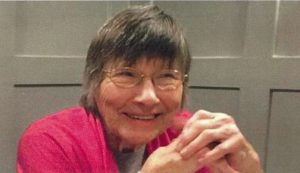
Areta Hautman made a very significant contribution to the school over many years.
Areta was a member of Council for a remarkable 40 plus years, and there was no one more committed to supporting school events. Both her children Jennifer and Geoffrey came to KAS, and her grandson, Garvin, is currently in the Lower School. Among many things, Areta was always passionate about the aesthetics of the site, and through her contribution to the Grounds and Building committee, would always take care of our environment. She was highly committed to the school’s ethos, as well as being the ‘guardian’ of the archive, which contains so much of the school’s rich history. Areta’s funeral took place at Golders Green crematorium on Saturday 31 August followed by a celebration of her life at the school. The large number gathered at her memorial service is testament to how loved and respected Areta was by Old Alfredians, staff and parents. A touching poem was read by Zah Rasul, Head of Operations and tributes were read by council members, teachers, the Head Robert Lobatto and President of KASS, Kara Conti.
A full obituary will appear shortly.
Dave McGee 1942-2018
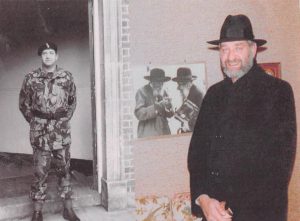
Zah Rasul, Head of Operations KAS reflects on life at KAS without Dave’s presence.
Outside, starlings swim up the cold grey syrup of January as I stand with your family in the still calmness of Golders Hill crematorium. You have been gone for 2 months and we are here to scatter your ashes. You were a big man and by the time we have finished walking around the lawn with the scatter tube, we have all had at least two turns each and there is still some of you left. The grass becomes a carpet of ash, marked with lines made of what you once were, just as you had marked our playing field with lines of chalk.
It seems fitting to spread you out over this vegetation, given you had dedicated the last two decades of your life tending to and cultivating grass; teaching me that grass is not simply grass, that there are six thousand species of the graminae family. You taught me that bamboo is a grass, and about stolons and rhizomes; that all grasses are made from stems, roots, leaves, and even flowers. Your love of roots wasn’t confined to the ground, we shared a love of roots reggae, the music of liberation and revolution.
When I return to school that January day, I see in my clumsiness your ashes covered my boots and so I tread them into and shake them all over our field.
Goodbye Dave. Dave the Boxer who at 72 split open the nose of a 20 year old would be mugger – I think his egos still on the floor of the High Street in East Barnet, Dave The Soldier posted out to Northern Ireland during the height of the Troubles, Dave The Bouncer, keeping the fans off the stage and at arms length from Robert Nesta Marley, Dave The Gate as you were known, keeping everyone safe and secure at The Sternberg centre, Dave the Groundsman of King Alfred School. Dave The Stoic, who accepted his diagnosis with a quiet dignity and strength. You don’t know how strong you can be, until being strong is the only choice you have left.
On Saturday mornings, I still listen out for your heavy steps when I would put on the kettle and make you mug of black tea so strong, it would lean over and beat the shit out of my cup of coffee.
I see the beaten tractor sitting idle and I think of the distance we shared, the distance between us and members of our families, and then too soon the distance between staying and leaving. I see evidence of you everywhere I look; I pass the mangled old shed, its doors boarded up tight while rain streams through its punctured roof. We can never close things up easily, because every nail opens another hole and every board is the wrong size.
It’s dark now as I take a mug black tea and stomp down the stairs you used to stomp up. I stand on the grass you labored over and pour out the tea; it runs over my boots and takes the last of you into the ground.
I look up to the sky and say your name aloud. The stars are silent, and unequivocal. The grass, waiting to grow.
Philip Leuw 2017
The school gave him the belief that he could try his hand at anything from engineering to cooking, building to electrics, as well as dealing with bookwork and later tackling EU regulations.
Philip’s daughter Susan recalls her father's time at KAS.
Phillip Leuw passed away on 7th October 2017. I believe he attended from approximately 1945 to 1948. I have seen some photos of him when they were reproduced in one of your earlier newsletters looking very blond and handsome, which is how I like to remember him as he was quite bald by 35! He had very fond memories of KAS as he had previously been unhappy at various boarding schools that he had attended from the start of the war, even running away from one, only to be found on the local station platform. He was obviously longing to be back in NW3 and with family in Maresfield Gardens. He was a perfect fit for KAS as he loved all things practical and became very competent at woodwork.
The school gave him the belief that he could try his hand at anything from engineering to cooking, building to electrics, as well as dealing with bookwork and later tackling EU regulations. After joining the family business at Smithfield he moved to Sussex to run his own business in bacon manufacturing, which was very successful
Nikki Archer 1921 – 2016
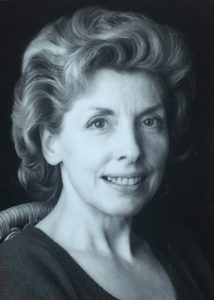
From 1970 to 1983 Nikki served as King Alfred’s first solo Headmistress and at the time, the longest serving Head of a recognised progressive school.
Teachers are important, particularly head teachers, and Nikki was important to and for me. Her KAS was the school I remember best: I was there from 1966 (when she was still sharing the Head’s responsibility with Alan Humphries) until I left after A levels in 1974. The timing was in some ways fortunate: I saw Nikki at her best and she and I had the opportunity to become friends. She went out of her way to take an interest in our 6th form; promote my various activities, including to parents she hoped might help my career; and, on one memorable occasion, she drove me to Cambridge to stay with a don at the university. Nikki was surprised and unimpressed that I was so clumsily inexperienced at filling a car with petrol.
It is a great loss to the collective memory that Nikki Archer has all but been forgotten by KAS, despite her many years of dedicated service to our community. Little if anything seems to remain of her rifle-shot intelligence, brilliant personal style, lively vision, educational innovation, and deep love for our school and its children.
One story about Nikki which captures some of her spirit during that rumbustious era: the filmmaker Stanley Kubrick was a parent at KAS at the time (in fact my mother taught German to one of his children). Nikki, as well as her role as Head of our proudly liberal school, also sat as a magistrate and was growing increasingly concerned by the number of young men who came up in front of her for committing violent crimes while dressed as “Droogs” (characters of distinctive style from Kubrick’s new film, A Clockwork Orange, recently launched to much debate). As a result the Head invited the film director to a meeting; Kubrick subsequently asked for his film to be withdrawn from distribution in the UK, a ban which held for nearly 30 years. A moral, thoughtful, pastorally sensitive but not uncontroversial outcome.
It is a matter of great sadness that, rather like some politicians, memories of Nikki and her work should be so coloured by the end of her career at the school. There were other members of KAS staff I was close to – it was that sort of place then – and we all stayed in various kinds of touch. That meant that when things later got difficult, although I was (probably luckily) not around, I did hear what went on and saw people’s deep distress.
Many have read the official history of KAS by Ron Brooks. For a more in depth, if personal, account one should also read the biography of Nikki Archer, “Ahead of Her Time”. Apart from offering extra insights into KAS, its history and ethos, this second book sheds light on her departure, when she was deposed as Head by a minority of Council members, effectively dragged from the school after many years of success. I was neither a witness nor one of those forced to choose sides but was privy to much of the unwritten story; the best one can say is that such chaotic periods are perhaps one of the prices of democracy. In any case the impact on the school was unhappy: Nikki’s departure was distinguished by a split down the middle of staff and parents.
When I got to know Nikki again many years later, I was pleased by her good sense in not rehearsing these old stories. She started coming to dinner after she was widowed and, very touchingly, she made it to my 50th birthday party in London in 2006, much to the surprise of my old friends from the 6th form. We kept in touch but when we lived abroad this could only be by letter and telephone. I miss Nikki – her intelligence, her wit, her acute observations and keenly focussed attention – and feel her absence from the history of the school very keenly. She was a fine woman, a great headmistress and a true Alfredian. Sebastian Cody OA
We are sorry to report the deaths of the following Old Alfredians and former staff
- Roger Pearman: 2009
- Freda Turney nee Mabey: April 2022
- Mamoun Hassan: July 2022
- Jill Duncan nee Ambrose: 2022
- Tim Weeks: August 2022
- Gerda Oblath: August 2021
- John Wethered Gibson: 2022
- Genna Aboody nee Lucas: January 2022
- Roly Boissevan: February 2007
- Karen Heward: April 2019
- Ruth Goldsobel: 2020
- Nicholas Alwyn: June 2021
- Sue Bolton: June 2021
- Alan Holmes: March 2021
- Chris Barber: March 2021
- Margaret (Shosh) Copley: 2020
- Dina Patuck: 2016
- Fram Patuck: 2014
- Raj Kothari: January 2017
- Janet Long nee Morrish: 2017
- Elvira Hera Jones: 1995
- Harald Molgaard: July 2020
- Peter Twachtmann: April 2020
- Sidney Thompson
- Peter Lipton
- John Kay Picknett
- Lilith Lehner
- Richard Gilford Adeney
- Penelope Goldsworthy
- Teresa Horton
- Anna Nicholson
- Andrew Duncan Smith: January 2020
- Stella Magarshack: December 2019
- Dawn Moore: December 2019
- John Derek Tunnell: April 2019
- June Greenfield (wife of Roy): June 2019
- Roy Greenfield: July 2019
- Barbara Frais: July 2019
- Areta Hautman: August 2019
- Sally Soames: October 2019
- Philip Leuw: October 2017
- Marianne Archer (nee Collingwood): June 2014
- Mary Kelemen: 2013
- Jonathan Marc Sykes: 2013
- Peter John Francis Raymond: 2011
- Jenifer C Jackson: 2011
- Peter Zadek: 2009
- Anthony Frederic Rapson:2008
- Juliet Bingley: 2005
- Steven Bullock
- Francesca Doughty
- Theodore Goldsmith
- Erica Sigrid Harper
- Ruth E Jacobs
- Gideon London
- Robert J A Luckham
- Audrey Mason
- Margaret Maxwell
- Leopold Steinlauf
- Jacqueline Ann Watson
- Lilith Lehner
- John Kay Picknett
- Peter Lipton
- Sidney Thompson


